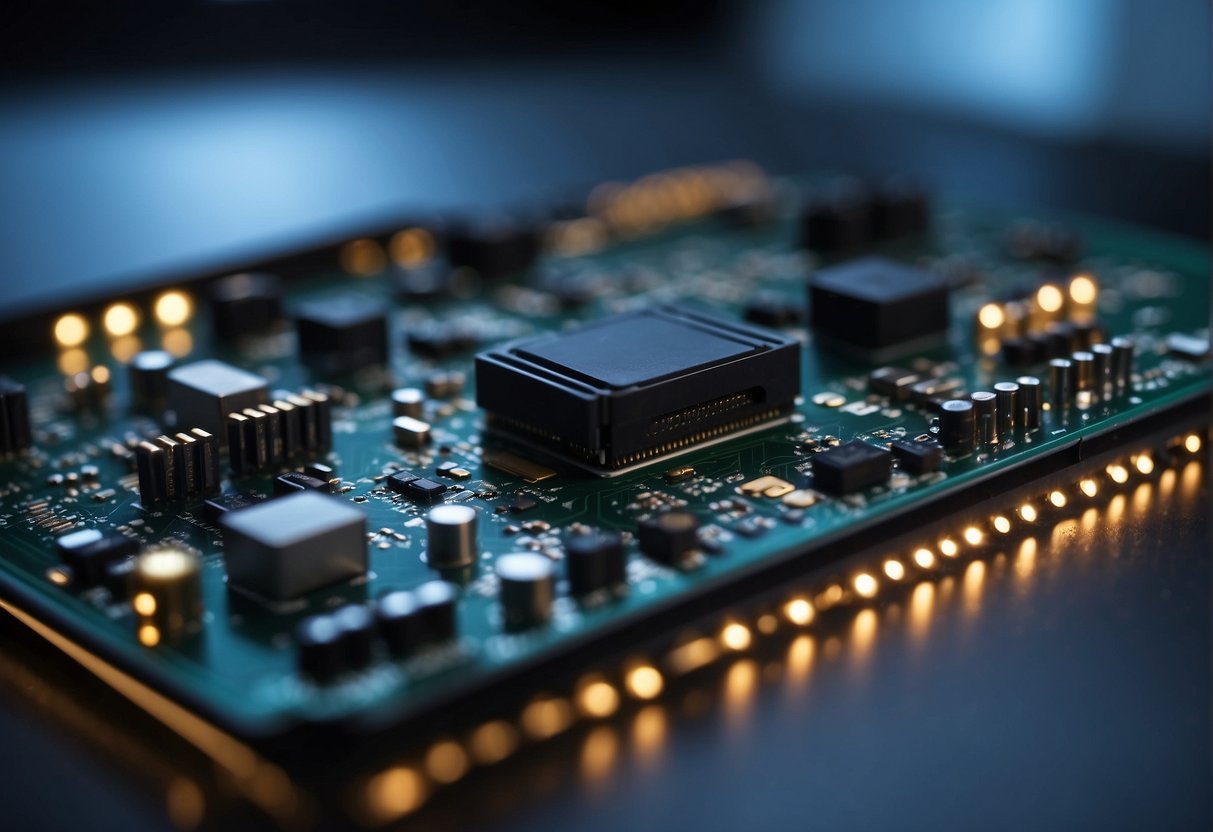Smart Contracts in Technology Integration for Settlement: Streamlining Transactions in the Digital Age

Smart contracts, self-executing contracts with the terms of the agreement directly written into code, are revolutionizing the settlement process across various industries. By leveraging blockchain technology, smart contracts provide an immutable, transparent, and decentralized environment to execute transactions automatically once predefined conditions are met. This significantly shifts away from traditional, manual settlement processes, providing a more efficient and reliable method for parties to transact.

Technology integration for settlement is greatly enhanced by adopting intelligent contracts, which streamline complex processes and reduce the reliance on intermediaries. Employing blockchain's distributed ledger, smart contracts ensure that records are secure and accessible to all parties involved in the transaction. This fosters trust and potentially reduces disputes, leading to a more coherent and integrated settlement landscape.
Despite the benefits, integrating intelligent contracts into existing systems presents challenges, including the need for robust legal frameworks and addressing potential technological risks. However, as the legal and governance aspects evolve and the technology matures, the prospects for intelligent contracts in technology integration remain promising. The continuous development in this field suggests that smart contracts could become a standard in executing and enforcing a wide array of agreements.
Key Takeaways
- Smart contracts automate settlement processes on the blockchain, enhancing efficiency.
- They reduce the need for intermediaries, fostering transparency and security.
- Integration challenges are present, but ongoing advancements promise future growth.
Fundamentals of Smart Contracts

Smart contracts represent a transformative approach to agreement management and execution. They allow transactions and agreements to be carried out automatically without a central authority, legal system, or external enforcement mechanism.
Defining Smart Contracts
A smart contract is a piece of computer code that facilitates, verifies, or enforces the negotiation or performance of a contract. Nick Szabo, a computer scientist and legal scholar, first conceptualized intelligent contracts in the 1990s, proposing that these digital agreements could execute themselves once predefined conditions were met.
History and Evolution of Smart Contracts
Smart contracts have come a long way since their inception by Nick Szabo, evolving significantly with the advent of blockchain technology. Szabo's initial idea was to embed contracts in computer code and make them self-enforcing, which laid the groundwork for the smart contracts used in modern blockchains like Ethereum.
Key Features of Smart Contracts
Smart contracts possess several key features that make them beneficial across various sectors. They are self-executing, with the terms of the agreement directly written into lines of code. Furthermore, the contracts are immutable and distributed, which means that once deployed, they cannot be altered and are shared across all participants in the blockchain network. This ensures a high level of transparency and trust among parties.
Blockchain Technology and Smart Contracts

Blockchain technology provides a decentralized platform for facilitating secure, transparent transactions. Smart contracts automate these transactions when predefined conditions are met. They are integral to modern settlement processes in various industries.
How Blockchain Enables Smart Contracts
Blockchain is the underlying technology that enables the operation of smart contracts. A distributed ledger records transactions across multiple computers, ensuring that each entry is secure and unalterable. Smart contracts are self-executing contracts with the terms of the agreement between buyer and seller directly written into lines of code.
Ethereum and Smart Contracts
Ethereum is a public, blockchain-based platform renowned for its smart contract functionality. It enables developers to create decentralized applications with smart contracts that automatically execute, control or document legally relevant events according to the terms of a contract or agreement. Ether is the cryptocurrency generated by the Ethereum platform as a reward to network nodes for computations performed. It is also the fuel for operating smart contracts on the Ethereum blockchain.
Smart Contract Use Cases in Settlement

Smart contracts are self-executing contracts that facilitate, verify, or enforce transaction or settlement agreements across various sectors. They ensure that transactions are completed securely and efficiently without intermediaries, thus saving time and reducing costs.
Finance and Banking
In finance and banking, smart contracts are transforming transaction settlements. They automate and streamline payment processes by eliminating intermediaries and directly connecting the parties involved. Transactions are recorded on a blockchain, creating a transparent and immutable ledger that reduces the risk of fraud and disputes. Case implementations include automated payment schedules for loans and bonds and the management of escrow services for real estate transactions.
Healthcare Transactions
Smart contracts offer a secure platform for processing payments and handling sensitive data for healthcare transactions. They are instrumental in claims processing, where contracts can be coded to release funds only when specific conditions are met, such as verification of service delivery. In this way, smart contracts provide a means to bridge gaps between healthcare providers, patients, and insurance companies, fostering timely settlements and enhancing the efficiency of healthcare services.
Integration Challenges and Risks

Integrating intelligent contracts into settlement processes can present entities with various technical challenges and security risks. These difficulties can impact confidentiality and the effectiveness of fraud prevention measures.
Technical Challenges
Integrating intelligent contracts into existing systems can be a complex task. The underlying technology requires a robust infrastructure that supports real-time data sharing and system compatibility. For example, integrating blockchain and smart contracts into construction supply chains requires significant changes to payment settlement periods in contracts, which can be technically challenging.
Security and Fraud Risks
Intelligent contracts are poised to enhance the settlement process but can also introduce new security concerns. Contract vulnerabilities, if exploited, can lead to substantial financial losses. Analyses of these vulnerabilities show the need for continuous security assessments to mitigate fraud risks and preserve privacy.
Efficiency and Cost Implications

Integrating intelligent contracts in technology systems significantly enhances efficiency and reduces transaction costs. It streamlines settlement processes by automating contractual obligations.
Transaction Costs and Speed
Smart contracts are a pivotal innovation, leading to a marked decrease in transaction costs. They expedite transactions by automatically enforcing contract terms, eliminating delays associated with manual processing. According to a study published in MDPI, blockchain-based smart contracts can improve the execution of construction projects, leading to sustainable performance by enabling instant payment settlements and rights transfer.
Reduction in Reliance on Trusted Third Parties
By utilizing smart contracts, parties reduce their reliance on trusted third parties such as lawyers, banks, and arbitrators. This cuts down on associated fees and administrative tasks. As per research on HeinOnline, innovative contract dispute resolutions can raise efficiency by providing faster outcomes while decreasing reliance on these intermediaries for enforcement, leading to self-executing contractual relationships that are less prone to disputes.
Legal and Governance Aspects

Integrating intelligent contracts into settlement processes involves navigating complex legal frameworks and governance models. They must align with existing legal practices and comply with regulatory requirements while providing governance and dispute-resolution mechanisms.
Smart Contract Governance
Smart contracts are self-executing contracts with the terms of the agreement directly written into code. The governance of these contracts is critical, as it defines the rules and processes by which they operate. For instance, in clearing and settlement, industry players, such as financial institutions, must establish clear governance structures that delineate how contract execution, enforcement, and potential disputes will be managed. Moreover, the governance framework can also determine how intelligent contracts interact with traditional legal systems.
Compliance with Laws and Regulations
Smart contracts must operate within the law's bounds and adhere to national and international legal standards. Compliance with laws and regulations is essential to ensure the agreements are enforceable in a court of law. Entities within the European Union must consider the local legal environment, which can vary widely from member state to member state. Furthermore, mechanisms for online dispute resolution may need to be integrated to address legal disputes that arise from clever contract use.
Future Prospects in Smart Contract Technology

Innovative contract technology is evolving rapidly and poised to revolutionize the transaction and settlement of digital assets. Enhanced blockchain technologies and innovative approaches to peer-to-peer transactions underscore this transformative period.
Advancements in Blockchain Technologies
Blockchain infrastructure is rapidly improving, with enhancements to increase transaction speeds and reduce costs. Upgrades focus on scalability solutions, such as sharding, which splits the blockchain into smaller pieces or "shards" to process transactions faster. These technological advancements bolster intelligent contract functionality, making them more attractive for widespread business applications.
Emerging Trends in Digital Asset Transactions
The digitization of assets has led to the rise of smart contracts in peer-to-peer transactions, providing a secure and transparent medium for exchanges. With smart contracts, parties can automate settlement and compliance, ensuring that all conditions are met before a transaction is finalized. This automation reduces the need for intermediaries and opens up new opportunities for digital asset innovation and decentralized finance.
Frequently Asked Questions

Intelligent contracts are reshaping the settlement landscape in the financial sector by automating processes and ensuring accuracy and trust. Their integration into banking systems signifies a shift toward more secure, efficient, and transparent financial operations.
How do intelligent contracts enhance settlement processes in the financial sector?
Smart contracts provide an automated and immutable agreement execution, significantly reducing the time and potential for errors in financial transactions. They facilitate faster clearing and settlement by executing predefined conditions without manual intervention.
What are the main advantages of using smart contracts instead of traditional ones?
The main advantages include increased efficiency due to automation, reduced counterparty risks, and lower costs associated with manual processing and intermediaries. Smart contracts also offer enhanced security and enforceability without a central authority.
In what ways are smart contracts being integrated into banking systems?
Banks are integrating intelligent contracts to automate routine banking operations, such as loan disbursements, interest payments, and compliance checks. This integration supports real-time transaction processing and improves overall banking efficiency.
Could you provide an example of a blockchain-based smart contract in action?
An example includes a smart contract for an escrow service where funds are released only when all contractual conditions are met, such as confirming a goods delivery. This ensures an automatic and transparent settlement process.
What distinctive features do smart contracts offer that benefit technology integration?
Smart contracts offer features such as transparency, where everyone involved can view the contract terms; tamper-resistance, ensuring the contract cannot be altered once deployed; and self-execution, which enables transactions to be processed without third-party involvement.
How do transaction fees play a role in executing blockchain intelligent contracts?
Transaction fees are required to compensate for the computing energy needed to execute and validate intelligent contracts on the blockchain. These fees can vary based on the network's congestion and the complexity of the smart contract functions.


